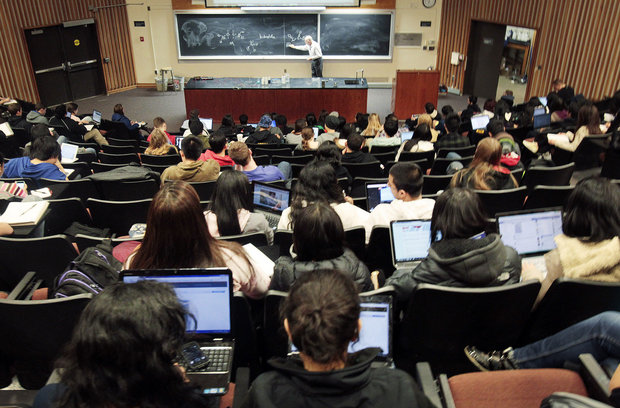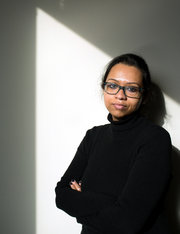
Jason Sprung, a 26-year-old comedian in Brooklyn, connected last year on the location-based dating app Tinder with a Tennessee woman who was visiting New York. The two didn’t get a chance to meet up while she was in town, but that didn’t deter them.
“We talked on the phone every day for almost a month and sent a lot of texts and photos and videos and sexts,” Mr. Sprung said. “We’d have phone sex. It felt close to a relationship without actually seeing the other person.”
The couple grew so intimate that the woman promised she would move to New York in six months. Mr. Sprung couldn’t wait that long. “So I broke up with someone I’d never even met before,” he said.
While his primary reasoning was logistical, he acknowledged that there may have been something else behind it. “You build up this rapport” over the phone and computer, he said, “and the expectations that we had of each other were very high. And I realized I’m not that great of a person. There’s no way I’m going to live up to that.”
Mr. Sprung’s story of a non-IRL (“in real life,” for those of a certain age) extended liaison is not unique. More and more technophilic and commitment-phobic millennials are shying away from physical encounters and supplanting them with the emotional gratification of virtual quasi relationships, flirting via their phones and computers with no intention of ever meeting their romantic quarry: less casual sex than casual text.
Contrary to anecdotal claims of the hegemony of hookup culture, several studies suggest young adults are not having as much sex as believed. A 2013 University of Portland study surveyed 18- to 25-year-olds who had completed at least one year of college, comparing results from 1988 to 1996 to those from 2002 to 2010. Fewer respondents from the more recent “hookup era” reported having had sex within the past year (59.3 percent versus 65.2 percent), and lower numbers said they had had multiple partners.
“We are not in the midst of a new era of no-rules-attached sexuality,” concluded one of the study’s authors, the sociology professor Martin Monto.
College students are also more sexually moralistic than one may suspect. A 2013 study from the University of Illinois at Chicago of 19,000 of them found that 73 percent lost respect for either men or women (or both) who they believed hooked up “a lot” (an admittedly subjective quantity).
Obviously, sex is not going out of fashion with 20-somethings, and the simulacrum is not replacing the real thing anytime soon. (Indeed, the Portland study noted that more respondents in the modern period are having casual sex, though this may also be a byproduct of fewer of them having a regular sexual partner or spouse.) But the proliferation of options through online dating, the ease and lower emotional stakes of screen-based communication, and ready access to pornography are producing a generation that sometimes prefers to keep physical relationships at phone-tapping thumb’s length.
Younger men, a demographic not known for pickiness when it comes to flings, may be most susceptible to these paradigm shifts.
Historically, young women “used to have more options on a face-to-face level,” said Sesen Negash, an assistant professor of couple and family therapy at Alliant University in San Diego who has worked at a number of college campuses. That is changing in the post-FaceTime world.
“There’s more accessibility to women that men may not have had before,” she said. “They have multiple apps and websites that they’re on simultaneously. Virtually, there’s that sense that there are so many options that they don’t have to choose.”
As Mr. Sprung suggested, the phone screen is also armor against vulnerability for these men, Dr. Negash said. Will Stephen, 25, agreed. A Brooklyn comedy writer for the website CollegeHumor, he has been on and off OkCupid, Tinder (which he has mined for comedic material) and the app Hinge for three years. Though he has been in contact with dozens of women, he said, he has gone on only three dates.
“My conversations drop off sometimes when I realize the fantasy version of online dating and the reality of it” are at odds, he said. “Then it starts to feel risky in a way it didn’t feel before. And the risk can spook you a little bit.”
Tom Philip, a 23-year-old freelance writer from London now also based in Brooklyn, echoed his anxieties. Mr. Philip has intermittently been active on dating sites or apps for three years as well, he said, engaging in sustained communication with upward of 50 women, but he has met up just once.
“The one date I went on,” he said, “I didn’t want to do it all day and nearly canceled three or four times because it felt like it was going to be a panic room of so much stuff going on.”
Even those who have already made in-person connections sometimes prefer the security of the phone to the anxiety of a romantic-comedy-cum-David Fincher thriller. Marle Cordeiro, 23, a professional poker player and model who splits her time between Manhattan and Las Vegas, recalled a frustrating dialogue with a man who kept asking her to hang out via text, then backed off whenever they set a time. In a similar situation, a friend of hers met a man who lived across the street from her workplace but who never visited.
“He would constantly text her and ask her for selfies,” Ms. Cordeiro said. “They want the idea of this hot girl sending pictures of herself, but they don’t want to make it a reality and find out she has problems or whatever.”
The impulse is often gender-neutral. Mr. Stephen confessed to fishing, at times, for positive responses from dating sites and apps to make himself feel better, a practice endorsed by Hallie Cantor, 25, a writer for “Inside Amy Schumer.”
“It’s a much better app when you don’t message anyone” on Tinder, she said, “because then it becomes a self-esteem boost: Anytime you open it, there’s a list of people who said they would have sex with you. It’s a little validating.”
Since a lot of her matches don’t end up messaging her after an initial expression of mutual interest (swiping right on each other’s picture), it “makes me think others are using it the same way,” she said. “It’s fun to swipe people left or right and be in a powerful position without having to go on an actual date with them and get to know that they’re a disappointing person.”
Swiping, and discovering someone else has right-swiped you, is not only fun; it may affect one’s neurological makeup. “The idea of someone who’s interested in you alters your hormonal state and releases dopamine,” Dr. Negash said, and habitual online daters are “looking for their next high. It’s the drug of choice for many right now.”
As with recreational drug use, tedium is often the catalyst. “Sometimes it’s honestly just boredom,” Ms. Cordeiro said. “It’s Friday and you have nothing to do. The ego boost is totally a thing.”
The ennui-plagued may turn to yet another time-honored stimulus on a Friday night. Dr. Negash has worked on five not-yet-published studies examining the role of pornography in college students’ lives. She found that the consumption of it resulted in lower “support seeking,” she said, meaning it made them less likely to look for friendships and romantic relationships. In addition, people who believe that relationships take effort reported that they were more likely to watch it.
Therefore, young men, especially, who have become chronic viewers of easily accessible pornography may be less inclined to explore the more challenging terrain of three-dimensional partners.
“It’s a one-sided relationship,” Dr. Negash said. “The screen is not asking anything of you. You’re not risking anyone hurting you.”

![Stuart-Green-Rutgers-websit[1].jpg](../stuart-green-rutgers-websit1jpg-b59bf06c247c0f7b.jpg)





